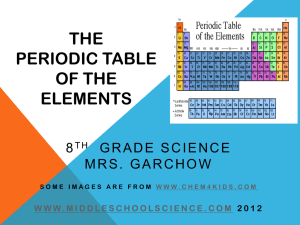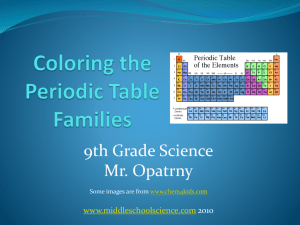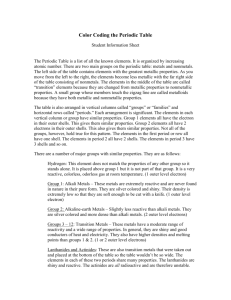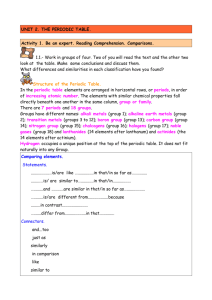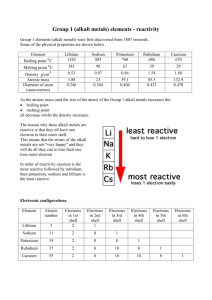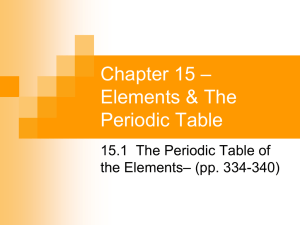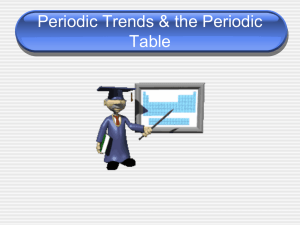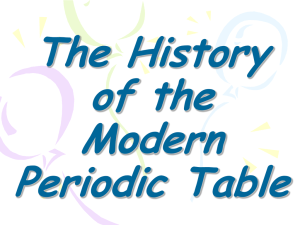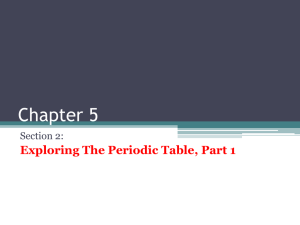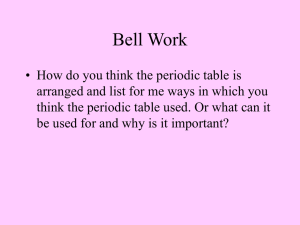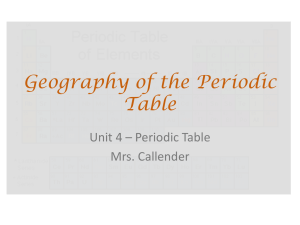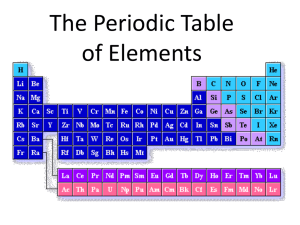Coloring the Periodic Table - Families
advertisement
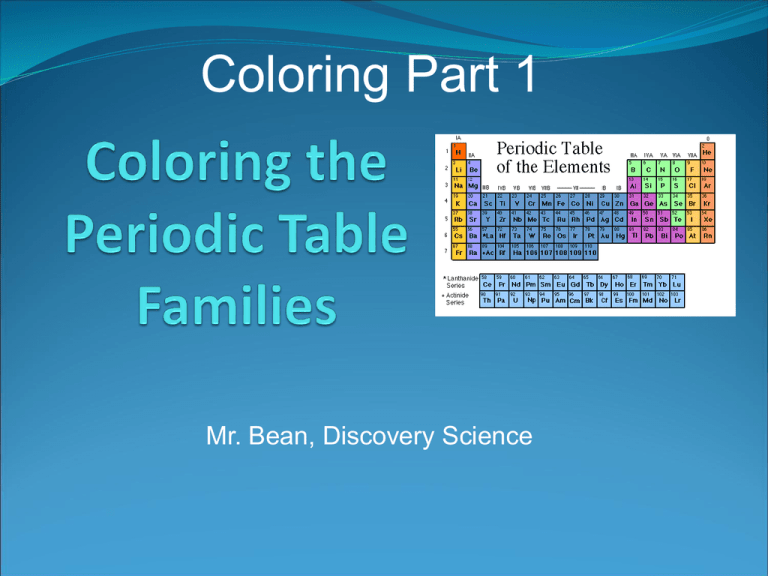
Coloring Part 1 Mr. Bean, Discovery Science Directions Obtain a periodic table or download it Read through the PowerPoint and color as indicated Answer post-project questions sheet. Get from Mr. Bean Period and Groups When you look at a periodic table, each of the rows is considered to be a different period When a column goes from top to bottom, it's called a group. The elements in a group have the same number of electrons in their outer orbital (Valence). Reactivity Alkali Metals and Halogens are very reactive because they have either 1 or 7 valence electrons Families on the Periodic Table Elements on the periodic table can be grouped into families bases on their chemical properties. Each family has a specific name to differentiate it from the other families in the periodic table. Elements in each family react differently with other elements. ALKALI METALS Group 1 Hydrogen is not a member, it is a non-metal 1 electron in the outer shell Soft and silvery metals Very reactive, esp. with water Conduct electricity Color Light Blue Image: http://www.learner.org/interactives/periodic/groups2.html ALKALINE EARTH METALS Group 2 2 electrons in the outer shell White and malleable Reactive, but less than Alkali metals Conduct electricity Color Dark Green TRANSITION METALS Groups 3- 12 Good conductors of heat and electricity. Some are used for jewelry. The transition metals are able to put up to 32 electrons in their second to last shell. Can bond with many elements in a variety of shapes. Color Dark Blue BORON FAMILY Group 13 3 electrons in the outer shell Most are metals Boron is a metalloid Color Red CARBON FAMILY Group 14 4 electrons in the outer shell Contains metals, metalloids, and a non-metal Carbon (C) Color Yellow NITROGEN FAMILY Group 15 5 electrons in the outer shell Can share electrons to form compounds Contains metals, metalloids, and non-metals Color Bright Green OXYGEN FAMILY Group 16 6 electrons in the outer shell Contains metals, metalloids, and non-metals Reactive Color ORANGE Halogens Group 17 7 electrons in the outer shell All are non-metals Very reactive are often bonded with elements from Group 1 Color Yellow Noble Gases Group 18 Exist as gases Non-metals 8 electrons in the outer shell = Full Helium (He) has only 2 electrons in the outer shell = Full Not reactive with other elements Color Grey Rare Earth Metals Some are Radioactive The rare earths are silver, silverywhite, or gray metals. Conduct electricity Color Violet Coloring Part 2: Color by Type Get another Periodic Table Color Code the periodic table as below Make a key or legend as seen below The End Turn in periodic table Answer post-project questions when completed
